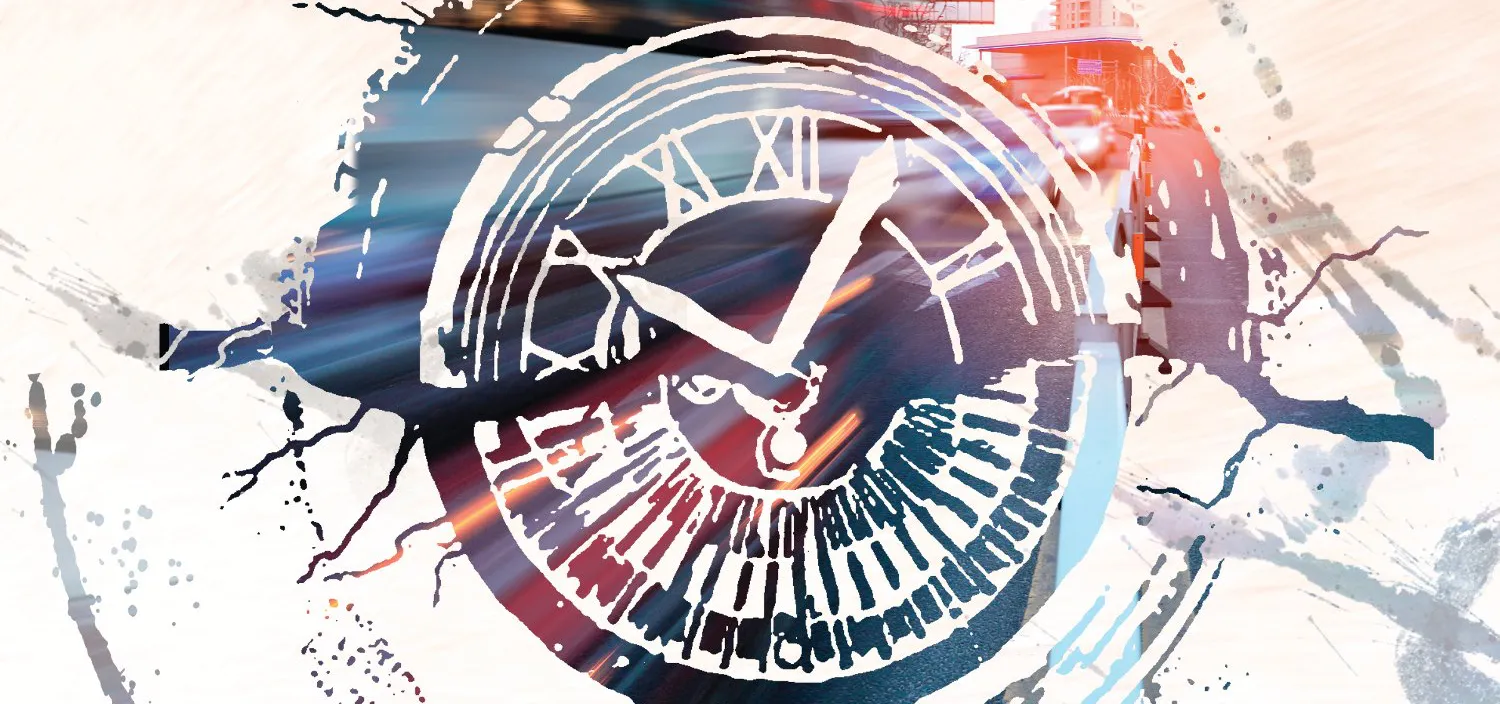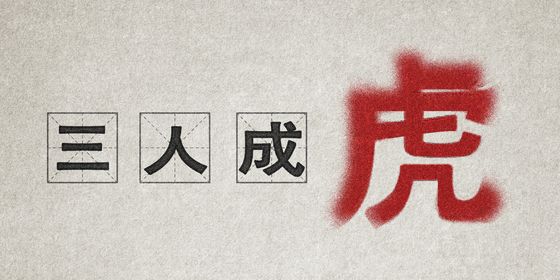You’ll need to hurry to catch this character
“Time is life,” observed the renowned 20th-century writer, translator and educator Liang Shiqiu. “It is most startling to hear a watch or clock clicking away the seconds, each click indicating the shortening of one’s life little by little.” For modern people, life is much like a battle against time. It seems that an invisible power urges us to do everything quicker, hastier, faster: more “快” (kuài, quick; fast; rapid; swift).
The character is commonly used to describe speed. The frequently used term for “courier” is 快递 (kuàidì) meaning “express delivery;” 快餐 (kuàicān) is “fast food;” and 快车 (kuàichē) is an express train or bus. Meanwhile, 动作快 (dòngzuò kuài) is to “act quickly” and 说话快 (shuōhuà kuài) means “fast talking.” Based on this, a quick worker is called 快手 (kuàishǒu), literally translated as “fast hand”—it’s also the name of a popular live-streaming app (see feature). For example: Liu is such a quick and neat worker that he is known as “Fast Hand Liu.” However, when it comes to 快嘴 (kuàizuǐ, fast mouth), this isn’t describing someone’s talking speed. Instead, it refers to people who voice their thoughts too readily, or have loose lips—in other words, a gossip.
You may also have heard people say 脑子快 (nǎozi kuài, “the brain is fast”). It means “quick-witted, clever, and nimble.” The term 眼疾手快 (yǎnjíshǒukuài, literally, “quick of eye and deft of hand”) is often used to describe fast reflexes.
If you want to express that you are “doing something at top speed”, you can turn to the idiom 快马加鞭 (kuàimǎ jiābiān, spurring on the fast horse). For example: 在这最后一个星期,我们要快马加鞭,按期完成任务。(Zài zhè zuìhòu yīgè xīngqí, wǒmen yào kuàimǎjiābiān, ànqí wánchéng rènwù. In the final week, we must “spur on the fast horse” and finish the project on time).
In some other cases, 快 also indicates a future tense, meaning “soon” or “before long.” For example, you can say : 我快要五十岁了。(Wǒ kuàiyào wǔshí suìle. I am about to be 50.)
Another meaning of 快 is “sharp; keen.” A sharp knife is 快刀 (kuàidāo). A Chinese saying states that “快刀斩乱麻” (kuàidāo zhǎn luànmá), which can be translated as “cut a tangled skein of jute with a sharp knife.” This old-fangled pearl of wisdom means that one should be resolute and take prompt measures in order to solve a complex problem.
But 快 didn’t always have these keen connotations. Its original meaning was “pleased, happy, satisfied.” As a pictophonetic character—where one component carries the meaning and another the sound—its radical
忄, a simplified version of 心 (xīn, heart), indicates that 快 is an emotion-related word. Many two-character words containing 快 have this meaning, such as 快乐 (kuàilè, happy), 快活 (Kuàihuo, jolly, merry, cheerful), or 快感 (kuàigǎn, apleasant sensation or delight). There is also the literary expression 快事 (kuàishì), meaning “an occurrence that gives great satisfaction or pleasure.” For instance, 他乡遇故知,实乃人生一大快事!(Tāxiāng yù gùzhī, shí nǎi rénshēng yī dà kuài shì! It is such a delight in life to encounter an old friend in a distant land!)

In this meaning, being served a sneak peak or trailer of a film is 先睹为快 (xiāndǔwéikuài, consider it a pleasure to be among the first to read or see); hurting oneself will lead to 亲痛仇快 (qīn tòng chóu kuài, sadden one’s close friends and gladden one’s enemies); when virtue is rewarded it 大快人心 (dàkuàirénxīn, gladdens the people’s hearts). The most interesting use of this exists in the word 快婿 (kuàixù). With 婿 (xù) meaning son-in-law, the word refers to an ideal match for one’s daughter.
When the character is used to depict a personality, 快 means “straightforward, forthright, and plainspoken,” as seen in words like 爽快 (shuǎngkuài, straightforward and outspoken).
Here we have the phrase 快人快语 (kuàirén kuàiyǔ), meaning “straightforward talk from a straightforward person,” which is usually used to flatter people face-to-face: “您快人快语!跟您聊天真是痛快” (Nín kuàirénkuàiyǔ! Gēn nín liáotiān zhēnshi tòngkuài! You are such a straightforward person, talking straightforwardly! It’s such a pleasure to talk with you!)
Last but not least, sometimes 快 is also a noun. In ancient times, a sheriff was called
捕快 (Bǔkuài), referring to a constable who caught criminals. But this word is no longer used for policemen in modern society. What do people call the cops now? That’s a lesson for another day.
On the Character: 快 is a story from our issue, “Wheel Life China.” To read the entire issue, become a subscriber and receive the full magazine.














